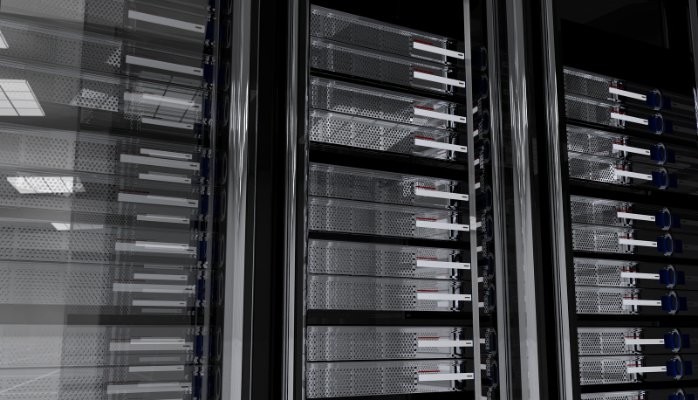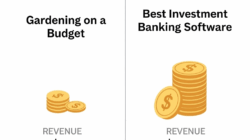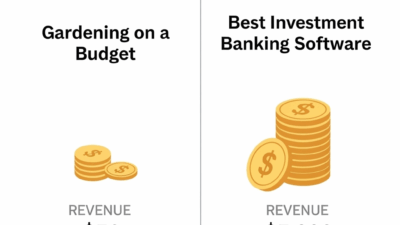In today’s digital era, businesses heavily rely on technology to meet their objectives efficiently. A key component of this technological landscape is dedicated servers – the powerhouse that unlocks unmatched potential. Dedicated servers offer businesses the opportunity to have a physical server solely dedicated to their needs. In this article, we will delve into the ins and outs of dedicated servers, highlighting their advantages, functionality, and importance in the digital realm.
What is a Dedicated Server?
A Dedicated Server, in the context of web hosting and server management, refers to a type of server that is exclusively dedicated to a single client or user. Unlike shared hosting or virtual private servers (VPS), where multiple users share the same physical server resources, a dedicated server provides an entire server’s resources and computing power to a single customer or organization.
Dedicated servers are commonly used by large websites, e-commerce businesses, applications with high traffic volumes, gaming servers, and organizations that require robust hosting solutions with maximum control and performance. However, they also require more technical expertise for setup, configuration, and ongoing maintenance compared to shared hosting or managed hosting options.

Advantages of Dedicated Servers
- Uncompromised Performance
Dedicated servers provide businesses with immense processing power, ensuring optimal performance. With dedicated resources, you can meet higher traffic demands, process complex tasks, and deliver an uninterrupted user experience. This powerhouse eliminates concerns about shared resources affecting your operations. - Enhanced Security
When it comes to data security, dedicated servers offer the highest level of protection. With rigorous security measures, such as firewalls, encryption, and intrusion detection systems, your sensitive information stays safe from potential threats. Additionally, you have full control over access permissions, minimizing the risk of unauthorized access. - Customization and Flexibility
Dedicated servers provide unparalleled customization options. From selecting hardware specifications to choosing the operating system, you have complete control over your server configuration. This flexibility allows you to tailor the server to your specific requirements, ensuring optimized performance and resource allocation. - Reliability and Uptime
High uptime is crucial for businesses to maintain online presence and avoid revenue loss. Dedicated servers offer exceptional reliability, ensuring maximum uptime for your applications and websites. By avoiding shared hosting environments, you eliminate the risk of other users impacting your server’s performance. - Scalability
s your business grows, so does the demand for resources. Dedicated servers allow seamless scalability to accommodate increased traffic, storage, and computing needs. Since you have full control over resources, scaling up or down becomes a hassle-free process, ensuring your server can handle any surge in demand.
Disadvantages of Dedicated Servers
While dedicated servers offer many advantages, they also come with some disadvantages and challenges. It’s important to consider these drawbacks when deciding whether a dedicated server is the right hosting solution for your needs. Here are some of the drawbacks or limitations of dedicated servers:
- Cost
Dedicated servers are more expensive than shared hosting, VPS hosting, or cloud hosting solutions. The cost includes not only server hardware but also ongoing maintenance, security, and management expenses. - Technical Expertise
Managing a dedicated server requires technical expertise. You need to be proficient in server administration, software updates, security configurations, and troubleshooting issues. If you lack the necessary skills, you may need to hire a server administrator or opt for managed dedicated hosting, which adds to the cost. - Maintenance
Dedicated servers require regular maintenance, including hardware monitoring, software updates, security patches, and backups. Failing to perform these tasks can lead to performance issues or security vulnerabilities. - Scalability
While dedicated servers can be scaled vertically by upgrading hardware, they may not be as flexible as cloud hosting solutions when it comes to rapid horizontal scalability. Adding additional servers can be time-consuming and costly. - Resource Allocation
You are responsible for managing and allocating server resources. If not configured properly, this can lead to resource wastage or underutilization, affecting cost-efficiency. - Downtime
Unlike cloud hosting, where you can easily migrate to a new virtual machine in case of hardware failure, dedicated servers may experience longer downtime in such situations, as hardware replacement can take time. - Limited Redundancy
Redundancy (having backup systems) is often a concern with dedicated servers. You need to implement your own redundancy solutions for critical components like power supplies, storage, and network connections. - Security Responsibility
While you have control over server security, this also means you’re responsible for securing the server against threats and vulnerabilities. Without proper security measures, your server can be at risk of attacks. - Initial Setup
Setting up a dedicated server can be time-consuming, especially if you’re starting from scratch. It involves configuring the operating system, software stack, and security measures. - Hardware Aging
Over time, server hardware may become outdated or less efficient compared to newer models. Regular hardware upgrades or replacements may be necessary to maintain performance. - Environmental Impact
Operating a dedicated server can have a larger environmental footprint compared to shared or cloud hosting solutions, as it consumes more power and resources.
When considering a dedicated server, it’s essential to weigh these disadvantages against the benefits and assess whether the level of control, performance, and customization they offer aligns with your specific hosting requirements and technical capabilities. Additionally, managed dedicated hosting services are available for those who prefer to offload some of the administrative responsibilities.

Functionality of Dedicated Servers
- Hosting Websites and Applications
Dedicated servers are ideal for hosting websites and applications that require optimal performance and security. With dedicated resources, you can handle heavy traffic, complex scripts, and database queries effectively, ensuring a seamless user experience. - Data Storage and Backup
Dedicated servers provide ample storage space for businesses to store their data securely. You can create backups, manage storage configurations, and implement strong disaster recovery plans. By consolidating your data on a dedicated server, you can ensure quick and easy access whenever needed. - Virtualization
Dedicated servers can be virtualized to create multiple virtual machines, each operating with dedicated resources. Virtualization enables businesses to maximize the use of their server hardware, reduce costs, and efficiently manage different applications and services. - Gaming Servers
Dedicated servers are instrumental for avid gamers who require low latency and high performance for multiplayer games. With a dedicated server, gamers can enjoy a lag-free gaming experience, optimized performance, and increased control over their gaming environment.
Best Dedicated Server Service
- Amazon Web Services (AWS)
AWS provides dedicated server services through Elastic Compute Cloud (EC2). They offer a wide range of server options with high scalability and configuration flexibility. AWS has data centers worldwide. - Microsoft Azure
Microsoft Azure also offers dedicated server services via Azure Virtual Machines. They have various operating system options, including Windows and Linux, as well as diverse hardware configurations. - Google Cloud Platform (GCP)
Google Cloud offers dedicated server services through Compute Engine. They provide a global infrastructure and flexibility in resource configuration. - IBM Cloud
IBM Cloud offers customizable dedicated server solutions to meet various needs. They also offer server management services. - DigitalOcean
DigitalOcean is a well-known cloud provider offering dedicated servers called “Droplets.” They are popular among developers and startups. - HostGator
HostGator provides hosting services, including dedicated servers. They are known for good customer support and a variety of server configuration options. - Bluehost
Bluehost is a popular hosting provider that also offers dedicated servers. They offer various customizable hosting packages. - InMotion Hosting
InMotion Hosting offers dedicated servers with a variety of options and robust features. They are also known for excellent customer support. - Liquid Web
Liquid Web specializes in high-performance hosting and advanced server management. They provide dedicated servers with top-tier performance. - OVH
OVH is a hosting provider with data centers worldwide. They offer dedicated server services with various configuration choices.
It’s essential to conduct further research, compare prices, features, and customer support before selecting a dedicated server hosting provider that suits your needs. Additionally, consider the location of their data centers if you have specific geographic requirements, and weigh security and server management aspects as well.
Conclusion
Dedicated servers serve as the powerhouse in the digital landscape, offering unmatched potential for businesses. With uncompromised performance, enhanced security, customization options, and scalability, dedicated servers provide the necessary infrastructure to support various applications, websites, and services. Their functionality extends to hosting, data storage, virtualization, and gaming servers, catering to a wide range of needs. By harnessing the power of dedicated servers, businesses can elevate their digital presence, improve efficiency, and ensure a seamless experience for their users.







